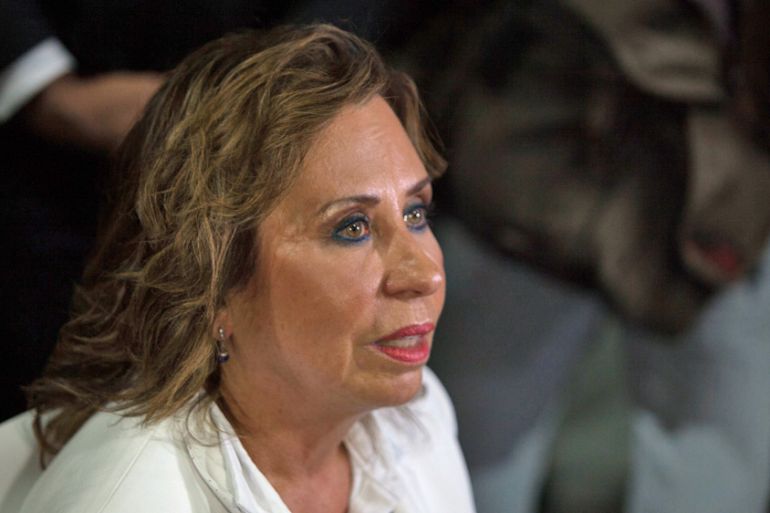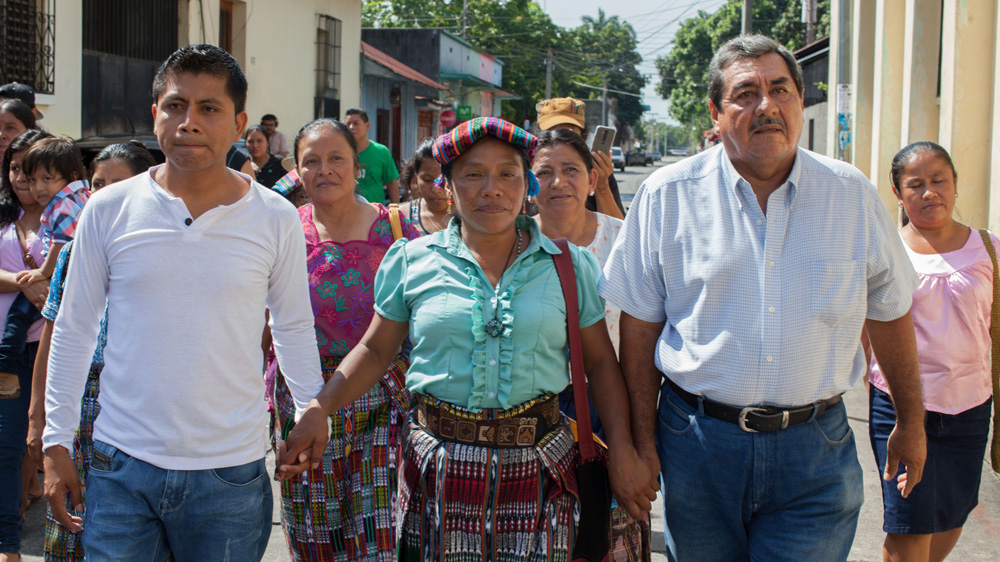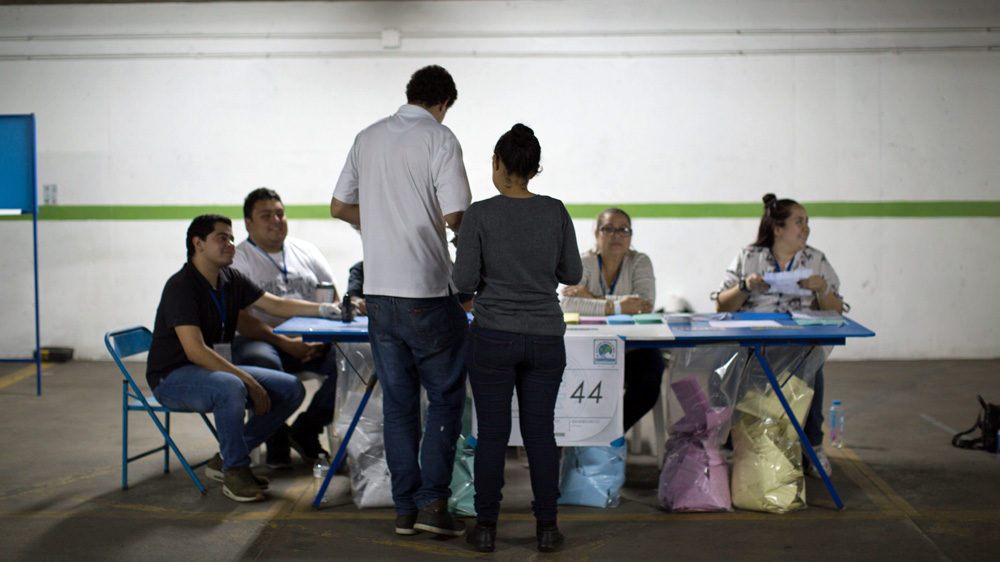Former first lady leads in Guatemala election
Favoured frontrunner Sandra Torres from the centrist National Unity of Hope party leads after the first round of voting.

Guatemala City – Guatemalans went to the polls to vote for the next president of the Central American country.
While the election produced a few surprises on Sunday, the favoured frontrunner, Sandra Torres – a businesswoman, former first lady, and candidate for the centrist National Unity of Hope party – led after the first round of voting.
Keep reading
list of 4 itemsSocialists lead in Catalonia elections, partial results show
Five takeaways from day 15 of Donald Trump’s New York hush-money trial
South Africa top court hears case questioning Zuma’s electoral eligibility
Torres, 64, obtained 24 percent of the vote with 50 percent of ballots counted. Since no candidate received a majority, the top two candidates will face a runoff scheduled for August 11.
Alejandro Giammattei of the right-wing Vamos party will square off with Torres. Giammattei is a former director of the national penitentiary system and has run for president in each election since 2007.
Giammattei thanked supporters on Sunday at a press conference at the party’s headquarters in the capital, Guatemala City.
|
|
Guatemalans also voted for 160 congressional representatives, 340 mayors, and 20 representatives for the Central American Parliament.
More than eight million people were registered to vote but, according to the country’s Supreme Electoral Council, turnout was only 53 percent, compared with 69.7 percent in 2015.
The electoral process was monitored by the human rights ombudsman’s office, the United Nations, the Organization of American States, and independent national observers.
The vote was marked by a number of irregularities during the campaign and on election day, including the suspension of balloting because of threats of violence in seven municipalities, as some residents burned vehicles and voting tables.
But according to Edie Cux, an observer with the Mirador Electoral, an independent observer group founded in 2003, voting at the majority of polling stations took place without incident.
“In spite of the reports of the closure of a few voting centres, we have concluded that this has been an election with little violence,” he told Al Jazeera.
Electoral firsts
The election was the first after a series of reforms passed in 2016 that tightened restrictions on campaign financing, clientelism, propaganda, and switching parties once in office.
“The electoral culture has improved, however, the culture of institutional democracy has not improved,” Cux said.
“We do not know their plans for government,” he said. “The frontrunners did not leave it fully clear what their posture is on key topics, including the struggle against corruption.”
The general election was the first time Guatemalans living in the United States were given the right to vote. According to the 2010 US census, more than one million Guatemalans live in the US, and 62,000 registered to vote.
|
|
Voting centres were set up in five cities, including New York City, Los Angeles and Houston, Texas.
“Migrants have always had an influence on the vote in Guatemala. But this time they have the opportunity for a direct vote,” Oswaldo Samayoa, a constitutional lawyer, told Al Jazeera.
According to preliminary statistics from the Supreme Electoral Council, only 730 Guatemalans voted in the US.
Old and new politics
Many candidates were seen as maintaining the status quo but some – including Thelma Cabrera with the Movement for the Liberation of the Peoples and Manuel Villacorta with the Winaq party – represented a new phenomenon in Guatemalan politics.
“They present arguments and proposals that are distinct from the normal politics,” Samayoa said. “These proposals open the doors for dialogue.”

An indigenous Mayan-Mam Campesino leader from the country’s southern coast, Cabrera has gained widespread notoriety on social media. She proposed rural development and holding a constitutional assembly to create a more pluralistic country.
“Thelma Cabrera is a political phenomenon that captured the vote of discontent with the system,” Iduvina Hernandez, director of the Association for the Study and Promotion of Security in Democracy, told Al Jazeera.
As of 1am (07:00GMT) on Monday, she was in fourth with 10.3 percent of the vote.
“Cabrera has a perspective that comes from below, from the communities. Villacorta comes from academia,” Samayoa said.
“We find a discourse that we are looking for,” he said. “People who have not been part of government, people who can improve transparency and fight corruption, and bring more credibility to the electoral process.”
